Winter Storm Elliott is forecast to bring blizzard conditions to much of the Midwest and Great Lakes this week, with the potential to develop into a powerful "bomb cyclone."
"Bomb cyclones refer to a more exceptional type of extratropical—or midlatitude—cyclone that is associated with a rapid drop in pressure," Esther Mullens, a professor of atmospheric science at the University of Florida, told Newsweek. "The typical criteria is 24 millibars in 24 hours."
The lower the pressure in a storm, the more intense it is, so this sudden pressure drop causes the storm to intensify very quickly. A similar storm hit the northeastern states in January, but it is unusual for this extreme weather to venture so far south.
A bomb cyclone did make its way down to the southeastern states in 2018, which resulted in 22 deaths, and hundreds of flight cancellations and left 300,000 people without power.
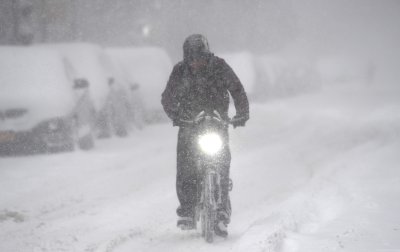

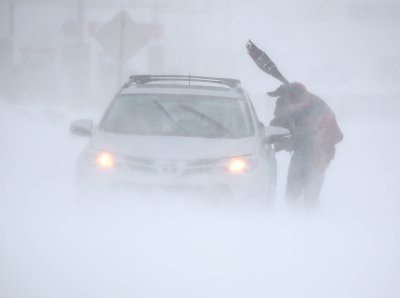
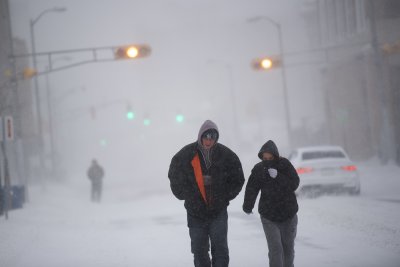
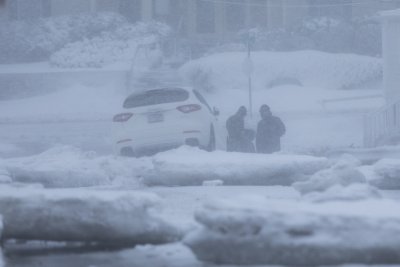
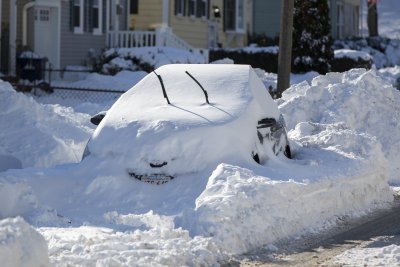
Elliott is expected to arrive in the Pacific Northwest and northern Rockies today, after which it should spread into the Plains and upper Midwest. The storm will reach its peak on Friday with high winds and heavy snow across the Midwest and parts of the East Coast.
"For the upcoming case, given the very low temperatures involved, there is the potential for snow, high winds, and heavy rain in the warmer sector of the storm," Mullens said.
The National Weather Service (NWS) has forecast heavy snowfall rates of one to two inches per hour in some areas, with wind gusts of over 50 miles per hour. The heaviest snow is predicted for the Great Lakes, with over a foot possible in some areas.
The storm is also anticipated to usher in freezing cold air as far south as Texas. "When the cyclone moves past, it sends cold air down on its western edge," Mullens said. "In this particular case, the air is expected to be very cold and to move quite far south, even into areas of the US that typically stay warm, like south Texas [and] Florida."
The NWS has predicted "dangerous cold" for much of the country, with temperatures likely to drop by as much as 35 degrees Fahrenheit in a matter of hours. Subzero temperatures have been forecast for the Dakotas and Minnesota, and many states are due to see the coldest Christmas in decades.
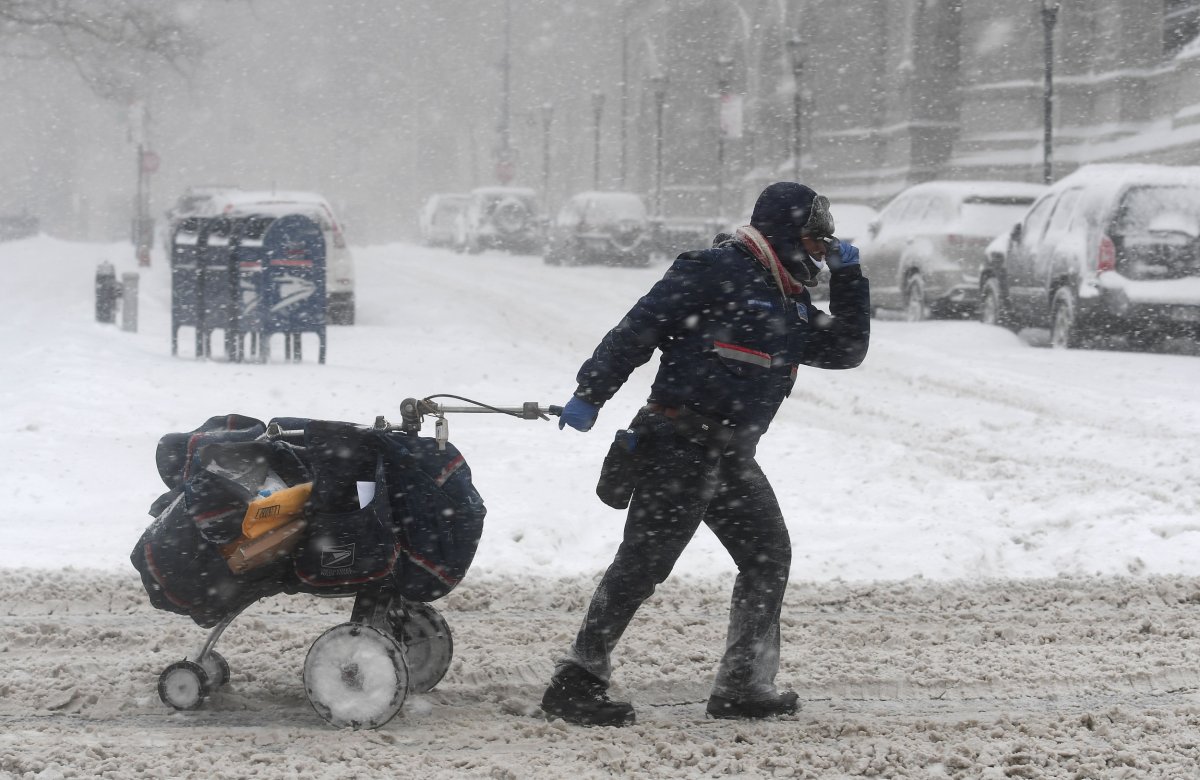
Such low temperatures bring with them the potential for flash freezes, where heavy rain freezes on pavements and roads, making travel slippery and dangerous. "The potential for hard freeze in areas that don't typically see these conditions is an added threat posed by this system," Mullen said.
The National Weather Service has issued storm alerts through much of the midwest, and significant disruption is expected for people wishing to travel over the Christmas weekend.
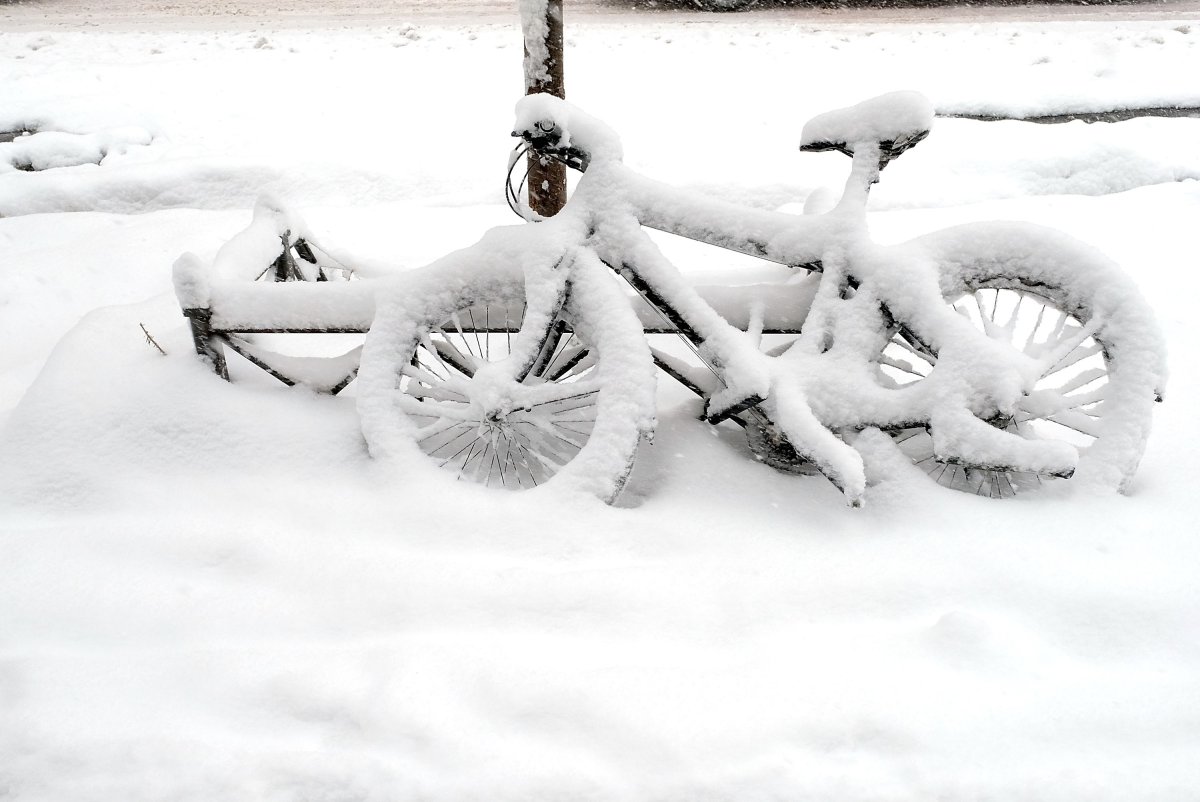
"To stay safe, maintain access to weather information and digest that information on a regular basis, as weather forecasts change with time," Mullens said.
"In areas anticipated to experience snow and/or frigid temperatures, be prepared and listen to the recommendations of the National Weather Service, including any watch or warming products they may issue, as well as advice provided from local emergency management and government officials."
Do you have a tip on a science story that Newsweek should be covering? Do you have a question about bomb cyclones? Let us know via science@newsweek.com.
Uncommon Knowledge
Newsweek is committed to challenging conventional wisdom and finding connections in the search for common ground.
Newsweek is committed to challenging conventional wisdom and finding connections in the search for common ground.
About the writer
Pandora Dewan is a Senior Science Reporter at Newsweek based in London, UK. Her focus is reporting on science, health ... Read more
To read how Newsweek uses AI as a newsroom tool, Click here.






